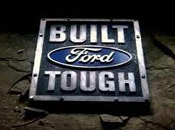Lower Your 2006 Ford Focus Car Insurance Quotes
Trying to find the cheapest car insurance rates for your Ford Focus? Searching for the cheapest insurance for a Ford Focus could be a painful process, but you can learn a few tricks to save time. There are more efficient ways to buy car insurance so we’re going to tell you the best way to price shop coverage for a new or used Ford and obtain the best price possible from both online companies and local agents.
Smart consumers take time to do rate comparisons periodically because prices are rarely the same from one policy term to another. Even if you got the best rates for Focus insurance on your last policy a different company probably has better rates today. Starting right now, block out anything you think you know about car insurance because you’re going to get a crash course in how to use online quotes to find lower rates on car insurance.
Finding the best rates is not rocket science. If you are insured now or are just looking to switch companies, you can use these techniques to find the best rates and still get good coverage. Vehicle owners just need to learn the tricks to shop online.
The best way we recommend to compare rates is to know the fact car insurance companies provide online access to provide you with a free rate quote. All consumers are required to do is spend a couple of minutes providing details like your credit rating estimate, if you went to college, whether you drive to work or school, and if your license is active. Your details is instantly sent to insurance carriers in your area and they return cost estimate with very little delay.
Tailor your coverage to you
When choosing the right insurance coverage for your vehicles, there is no cookie cutter policy. Coverage needs to be tailored to your specific needs.
These are some specific questions can help discover if your insurance needs could use an agent’s help.
- How high should deductibles be on a 2006 Ford Focus?
- Why do I need rental car insurance?
- Does my policy cover me when driving someone else’s vehicle?
- What can I do if my company denied a claim?
- Should I drop comprehensive coverage on older vehicles?
- What is the difference between comprehensive and collision coverage?
- Do I have coverage for damage caused while driving under the influence?
- What is UM/UIM insurance?
- Which companies will insure high-risk drivers?
If you’re not sure about those questions but you think they might apply to your situation, you may need to chat with a licensed insurance agent. If you want to speak to an agent in your area, simply complete this short form. It is quick, free and can help protect your family.
Specifics of your car insurance policy
Knowing the specifics of a car insurance policy helps when choosing the best coverages and the correct deductibles and limits. Car insurance terms can be difficult to understand and nobody wants to actually read their policy.
Collision protection
This pays to fix your vehicle from damage resulting from colliding with a stationary object or other vehicle. You will need to pay your deductible then your collision coverage will kick in.
Collision coverage pays for claims like colliding with another moving vehicle, driving through your garage door and colliding with a tree. Paying for collision coverage can be pricey, so you might think about dropping it from vehicles that are older. Another option is to bump up the deductible to get cheaper collision coverage.
Medical payments and PIP coverage
Coverage for medical payments and/or PIP provide coverage for bills like hospital visits, chiropractic care, ambulance fees, surgery and EMT expenses. They are often utilized in addition to your health insurance policy or if there is no health insurance coverage. They cover you and your occupants as well as getting struck while a pedestrian. PIP is only offered in select states and gives slightly broader coverage than med pay
Comprehensive auto coverage
This will pay to fix damage caused by mother nature, theft, vandalism and other events. You need to pay your deductible first then your comprehensive coverage will pay.
Comprehensive can pay for claims such as a broken windshield, hitting a deer, theft and damage from getting keyed. The maximum amount a car insurance company will pay at claim time is the market value of your vehicle, so if the vehicle is not worth much consider removing comprehensive coverage.
Liability
Liability coverage will cover injuries or damage you cause to other’s property or people that is your fault. This insurance protects YOU from claims by other people, and does not provide coverage for damage sustained by your vehicle in an accident.
Coverage consists of three different limits, per person bodily injury, per accident bodily injury, and a property damage limit. Your policy might show policy limits of 25/50/25 that means you have a $25,000 limit per person for injuries, a total of $50,000 of bodily injury coverage per accident, and a limit of $25,000 paid for damaged property.
Liability insurance covers claims such as pain and suffering, emergency aid and repair costs for stationary objects. How much coverage you buy is up to you, but you should buy higher limits if possible.
UM/UIM (Uninsured/Underinsured Motorist) coverage
This provides protection when the “other guys” are uninsured or don’t have enough coverage. This coverage pays for medical payments for you and your occupants and damage to your Ford Focus.
Since a lot of drivers carry very low liability coverage limits, it only takes a small accident to exceed their coverage. So UM/UIM coverage is very important.

